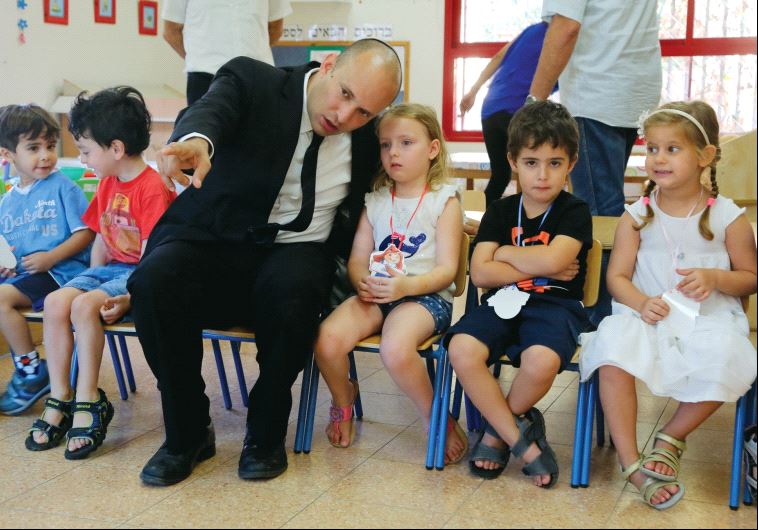Bennett backs banning 'anti-IDF organizations' from schools
Moalem-Refaeli said that the education system is meant to teach children to love their country, not destroy it.
 Education Minister Naftali Bennett meets with pupils at the start school year(photo credit: SASSON TIRAM)Updated:
Education Minister Naftali Bennett meets with pupils at the start school year(photo credit: SASSON TIRAM)Updated: